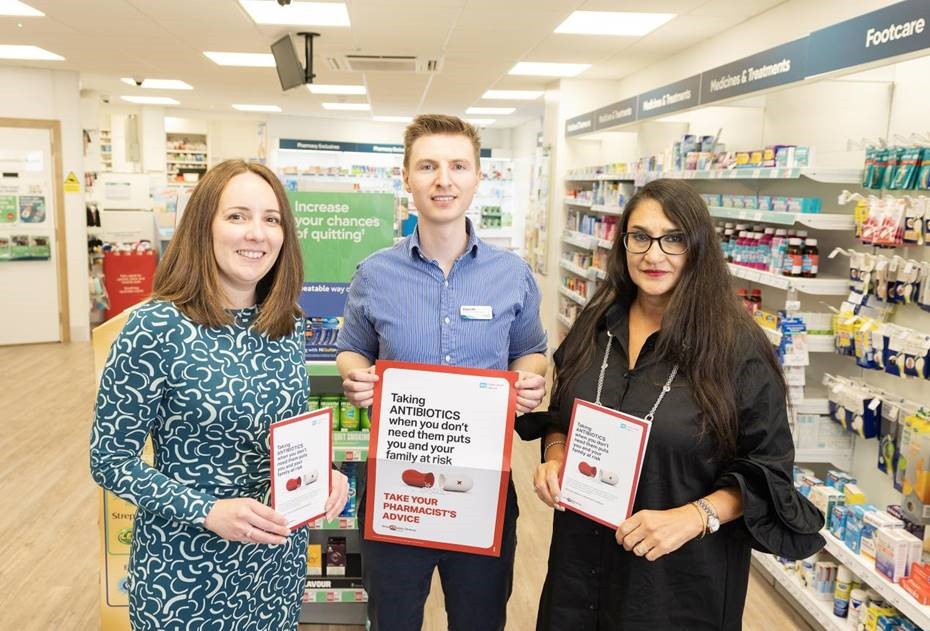Living Well community pharmacies are backing a call for people to look after their mental health this December and January.
Across the two months, the pharmacies involved are encouraging people to ‘take 5 steps to wellbeing’ and show the same level of care for their mental health as they do for their physical health.
The ‘Take 5’ approach encourages building healthy habits into your everyday life to help bolster your emotional and mental wellbeing.
Fiona Teague, Regional Lead for Mental Health and Emotional Wellbeing at the Public Health Agency (PHA), said: “Looking after your mental health should be every bit as important as your physical health.
“The Take 5 Steps are a great way to make sure you’re checking in with yourself and taking time for that little bit of self-care that can help you to feel better.
“They cover a range of aspects crucial to your emotional wellbeing and are good for helping people to find balance, build resilience and boost mental health and wellbeing.”
The Take 5 Steps are:
- Connect
- Keep learning
- Be active
- Take notice
- Give
To find out more about the Take 5 Steps, please visit www.pha.site/Take5Steps
Niall Falls, community pharmacist from Falls Pharmacy in Cookstown, said: “We’re delighted to be involved with this campaign which can really help people with their mental wellbeing.
“Starting that conversation about someone’s mental health is so important and our role at the heart of communities allows us to make those connections.
“We also have other more specialist resources that we can signpost to, for those that are feeling low or feel they might benefit from further help.”
Living Well is a community-based pharmacy service offered in over 500 pharmacies across Northern Ireland. It is delivered in partnership by the PHA, Community Pharmacy NI, and the Department of Health, and provides key public health messages and advice through these pharmacies.
ENDS
Notes to Editors
- For more information and local services that offer help and support on a range of issues which can affect mental health and wellbeing, visit www.mindingyourhead.info
- A directory of services to help improve mental health and emotional wellbeing is available at www.mindingyourhead.info/services
- The Community Wellbeing hub also offers a range of information, self-help guides and ways to access help and support – www.communitywellbeing.info
- The PHA commissions the regional 24/7 freephone crisis counselling helpline Lifeline 0808 808 8000. It is available for people of all ages and calls to Lifeline are answered by qualified crisis counsellors. The service can also offer face-to-face counselling sessions for those who require it within their community or over the telephone where appropriate. For more info, see www.lifelinehelpline.info
- The Lifeline service also offers a textphone number 18001 0808 808 8000 for those who are deaf or have hearing difficulties and uses the SignVideo app for British and Irish sign language users. If English is not an individual’s first or preferred language, Lifeline can access translators to speak to a person in their preferred language.




